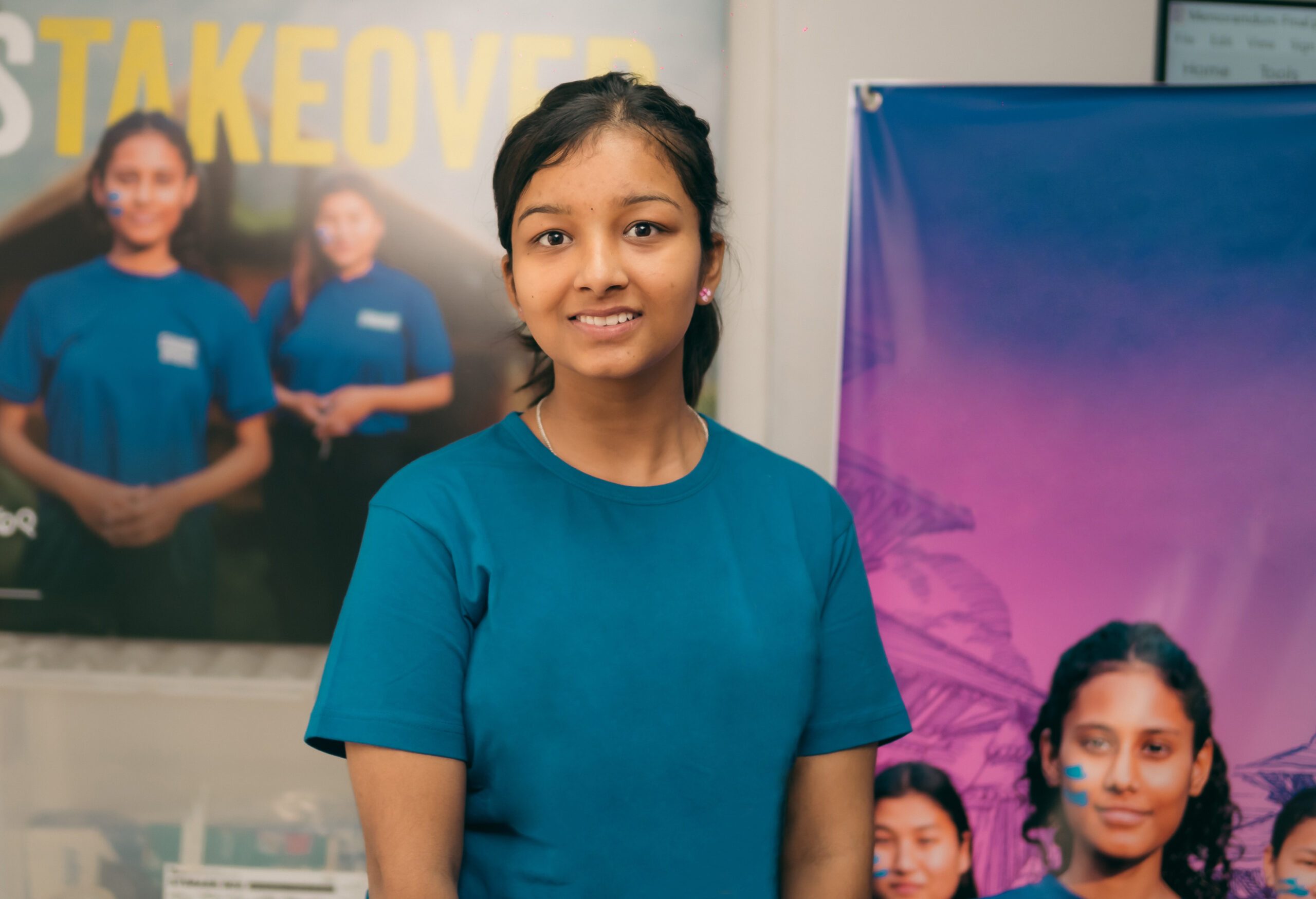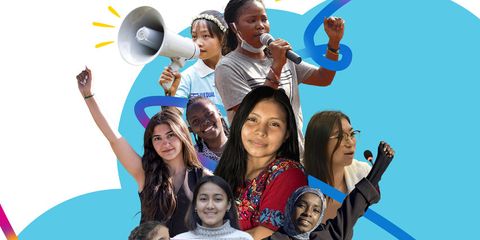This is the Future Girls Want – will world leaders listen?
20 August 2024Samikshya, aged 19 from Nepal demands a more just and sustainable world where girls are heard in the lead up to the Summit of the Future.

I am Samikshya, a 19-year-old girl from Nepal. Today, I want to share with you the struggles that adolescent girls like me face.
Despite progress towards the 2030 Agenda, many of us are still being denied our rights, face discrimination, and are underestimated in our potential to be change-makers. With only 12% of the Sustainable Development Goals (SDGs) on track, and nearly half moderately or severely off track, it’s clear that urgent action is needed.
Patriarchal norms and economic disparities continue to exacerbate gender-based violence and inequality. This is why a group of global young people have drawn up the Girls’ Pact – our vision for a better world where gender-based discrimination and inequalities are eradicated. Decision-makers must listen to our voices and the recommendations we put to them so the future is a safe place where we may thrive.
Girls’ voices must be heard
It’s essential our voices are heard at the Summit of the Future in New York in September. The Pact for the Future (the document governments will agree as a blueprint for future development work) must call out the experiences and accept the demands of girls from across the globe – or it may not be a world in which we can even survive. The time to act is now.
It’s essential our voices are heard at the Summit of the Future in New York in September. The Pact for the Future (the document governments will agree as a blueprint for future development work) must call out the experiences and accept the demands of girls from across the globe – or it may not be a world in which we can even survive.
One area where urgent action is needed is on the climate emergency. In my experience, climate change has been a relentless adversary. Seasonal floods have destroyed our schools, extreme heat waves make summer unbearable and freezing winters disrupt our education. These climatic events don’t recognise age or gender but their impacts are often most severe on girls, especially in rural areas. We are often the most vulnerable, yet our voices are frequently overlooked in discussions about climate resilience and justice.
I remember my childhood, playing in the mud and helping my parents with seasonal crops. Those were happy times, but things have changed. Now, unpredictable weather patterns and extreme climate events have become the norm. Excessive rainfall and prolonged droughts disrupt not just our agriculture but also our education. Girls are particularly affected, as we often have to fetch water for hours, missing school and falling behind in our studies. This not only obstructs our education but also exposes us to the risk of child marriage, human trafficking, and gender-based violence.
In Nepal, air pollution is so severe that schools sometimes close for days, disrupting our learning. Rainfall damages school buildings and toilets, making them unsafe and unhygienic, especially during the monsoon season. The lack of clean water and proper sanitation facilities further complicates our situation, affecting our health and dignity.
Empower and invest in girls
Girls need to be heard and included in decision-making processes. Our resilience and determination in the face of adversity are inspiring, and we are powerful voices for change. However, to make a real impact, we need global solidarity and action.
Empowering and investing in girls through activism and campaigns led by adolescents is essential. We need to act now and stand together to ensure that girls and boys have equal opportunities. The Summit of the Future offers a platform to address these issues and bring about meaningful change.
Girls know their own situations best and have lived experiences to share – our voices must be part of the conversation in decision-making spaces where our futures are being determined.
The Girls’ Pact provides a crucial framework for action. We urge governments to protect young people, end harmful practices, eliminate violence and discrimination and invest in our education, health and development – and bring an end to the conflicts and crises that disrupt girls’ lives. Girls know their own situations best and have lived experiences to share – our voices must be part of the conversation in decision-making spaces where our futures are being determined.
Kathleen Sherwin, Chief Engagement Officer at Plan International agrees: “We have to keep listening to them and pushing others to as well – whether it’s their families, communities, local government officials, global and multilateral leaders, and civil society organisation representatives. Girls and young people need to be at the table so we can all work together toward a just and equitable world.”
A better world, with gender equality at its heart
Statistics show that achieving gender equality will take 131 years at the current rate. We cannot wait that long. Research by Plan International predicts that more than 12.5 million girls may be prevented from completing their schooling each year due to climate change. This is unacceptable.
Leaders must listen to global girls’ voices, and work with us to create a more just and sustainable world. Our call for action should inspire everyone to act and demand gender and climate justice.
Governments must:
- Protect young people from all forms of discrimination, especially the most vulnerable and marginalised
- Target and accelerate action to eliminate all forms of violence against all women and adolescent girls
- Invest in social services for young people, in all their diversity, including for their sexual and reproductive health
- Strengthen meaningful youth participation and leadership
- Ensure that science, technology and innovation improve the lives of women and girls
- Protect all civilians in armed conflict, especially children
- Invest in the education and development of children and young people to help end poverty
- Combat climate change and finance adaptation and resilience measures.
Let us join hands in this crucial mission and work together to create a future where every girl can achieve her full potential.
This is the future girls want. Are you with us?



